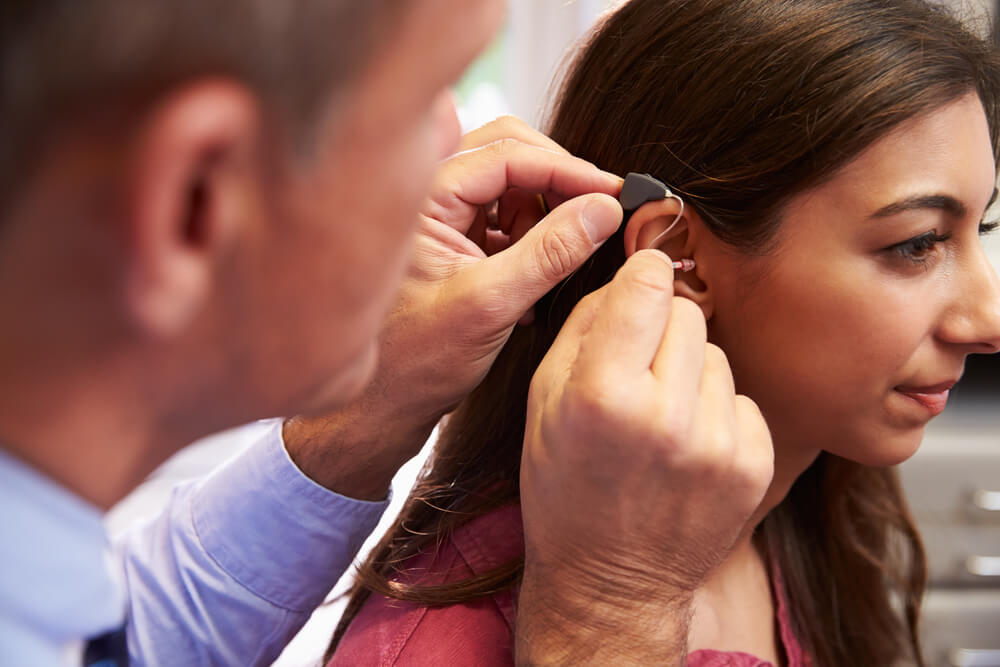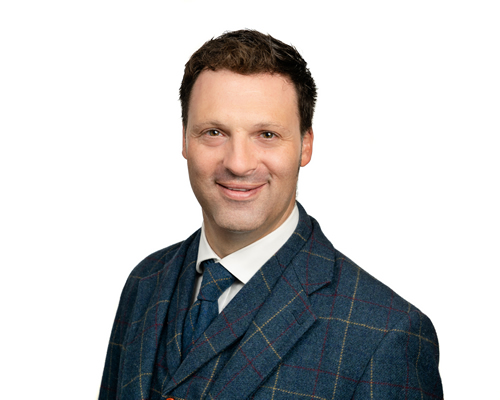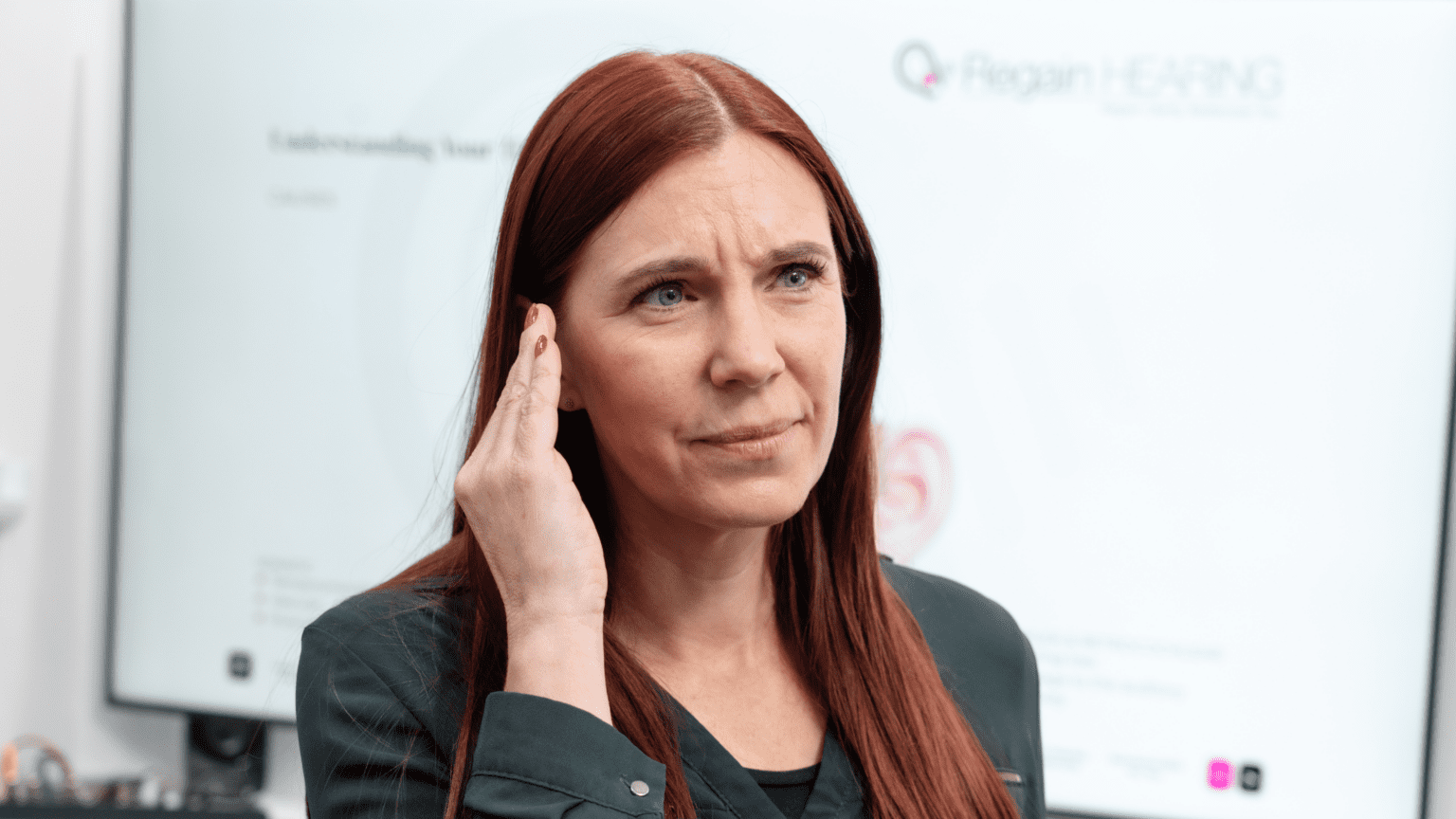
Many people have hearing loss to some degree. It may be that it’s slight and you have minor difficulty picking up certain sounds or hearing conversations in loud settings, or it could be profound and you find yourself shut off from the world and unable to communicate. Either way, you may benefit from wearing hearing aids so that sounds are amplified and you can hear most everything again. But if you’ve never worn one, you may be asking “do hearing aids work?”
Lots of people wear hearing aids in the UK because it’s estimated that one in six of the adult population suffers from some degree of hearing loss. That’s around 11 million people, but only about 2 million people use hearing aids, leaving a lot of people with ongoing hearing difficulty that they really shouldn’t have to put up with when there’s real help at hand.
Hearing aids are not just for the elderly either as hearing loss can come about for a number of reasons. Temporary hearing loss can develop as the result of loud noises that damage the delicate hairs in the ear that are responsible for transmitting sound waves, for example — or it can become permanent.
Various medications can also have a detrimental effect on the workings of the inner ear and lead to hearing loss. And some diseases, such as meningitis, mumps and chickenpox, can also be a cause. However a decline in hearing comes about, it’s important to know that there are steps you can take to hear the world in crystal-clear fashion again.
How Do Hearing Aids Work?
Today’s hearing aids are small and powerful electronic devices that sit either in the ear or behind it, and they work by boosting some or all of the sounds around you. They’re made up of a microphone that picks up the sounds; an amplifier, to boost the sound and a speaker, which delivers the louder sounds directly to your ear.
But modern hearing aids are so much more than three components — apart from also the battery, which lasts for around a week, and some are rechargeable — there’s a sophisticated computer chip that helps to deliver the best sound possible to you. The effect of being able to hear properly once again can be transformative, allowing you to resume the social and perhaps also work life that you may have abandoned because you simply couldn’t hear properly.
What to Look for before Buying Hearing Aids
- Is there a warranty with the device?
- Will your hearing aid provider be able to carry out regular servicing to ensure it performs at optimal levels and lasts a long time?
- What is the cost of the hearing aids?
- Is it possible to have a trial period with the hearing aids so you can see how they work and how they help your hearing loss?
If you’re then satisfied that hearing aids are for you, you can go ahead and have them fitted. And you can be sure that they’re going to improve the essential elements of your life that you thought you had lost: the ability to hear the sounds of people, nature and everything else around you that will give you your full and happy life back.
Hearing aids have been proven to provide welcome relief and return hearing function. Get your hearing aid.
- How long can you expect your hearing aid to last?
- Is there a warranty with the device?
- Will your hearing aid provider be able to carry out regular servicing to ensure it performs at optimal levels and lasts a long time?
- What is the cost of the hearing aids?
- Is it possible to have a trial period with the hearing aids so you can see how they work and how they help your hearing loss?
If you’re then satisfied that hearing aids are for you, you can go ahead and have them fitted. And you can be sure that they’re going to improve the essential elements of your life that you thought you had lost: the ability to hear the sounds of people, nature and everything else around you that will give you your full and happy life back.
Hearing aids have been proven to provide welcome relief and return hearing function. Get your hearing aid.
- What are the features of the hearing aid that’s being suggested?
- How long can you expect your hearing aid to last?
- Is there a warranty with the device?
- Will your hearing aid provider be able to carry out regular servicing to ensure it performs at optimal levels and lasts a long time?
- What is the cost of the hearing aids?
- Is it possible to have a trial period with the hearing aids so you can see how they work and how they help your hearing loss?
If you’re then satisfied that hearing aids are for you, you can go ahead and have them fitted. And you can be sure that they’re going to improve the essential elements of your life that you thought you had lost: the ability to hear the sounds of people, nature and everything else around you that will give you your full and happy life back.
Hearing aids have been proven to provide welcome relief and return hearing function. Get your hearing aid.
- Is there a particular model of hearing aid that’s best suited to your hearing loss and your lifestyle? For example, will it be small enough that it will be virtually unnoticeable in public settings?
- What are the features of the hearing aid that’s being suggested?
- How long can you expect your hearing aid to last?
- Is there a warranty with the device?
- Will your hearing aid provider be able to carry out regular servicing to ensure it performs at optimal levels and lasts a long time?
- What is the cost of the hearing aids?
- Is it possible to have a trial period with the hearing aids so you can see how they work and how they help your hearing loss?
If you’re then satisfied that hearing aids are for you, you can go ahead and have them fitted. And you can be sure that they’re going to improve the essential elements of your life that you thought you had lost: the ability to hear the sounds of people, nature and everything else around you that will give you your full and happy life back.
Hearing aids have been proven to provide welcome relief and return hearing function. Get your hearing aid.
If you’ve been advised that you might need hearing aids, you should ask your audiologist some questions, such as:
- Is there a particular model of hearing aid that’s best suited to your hearing loss and your lifestyle? For example, will it be small enough that it will be virtually unnoticeable in public settings?
- What are the features of the hearing aid that’s being suggested?
- How long can you expect your hearing aid to last?
- Is there a warranty with the device?
- Will your hearing aid provider be able to carry out regular servicing to ensure it performs at optimal levels and lasts a long time?
- What is the cost of the hearing aids?
- Is it possible to have a trial period with the hearing aids so you can see how they work and how they help your hearing loss?
If you’re then satisfied that hearing aids are for you, you can go ahead and have them fitted. And you can be sure that they’re going to improve the essential elements of your life that you thought you had lost: the ability to hear the sounds of people, nature and everything else around you that will give you your full and happy life back.
Hearing aids have been proven to provide welcome relief and return hearing function. Get your hearing aid.
If you’ve been advised that you might need hearing aids, you should ask your audiologist some questions, such as:
- Is there a particular model of hearing aid that’s best suited to your hearing loss and your lifestyle? For example, will it be small enough that it will be virtually unnoticeable in public settings?
- What are the features of the hearing aid that’s being suggested?
- How long can you expect your hearing aid to last?
- Is there a warranty with the device?
- Will your hearing aid provider be able to carry out regular servicing to ensure it performs at optimal levels and lasts a long time?
- What is the cost of the hearing aids?
- Is it possible to have a trial period with the hearing aids so you can see how they work and how they help your hearing loss?
If you’re then satisfied that hearing aids are for you, you can go ahead and have them fitted. And you can be sure that they’re going to improve the essential elements of your life that you thought you had lost: the ability to hear the sounds of people, nature and everything else around you that will give you your full and happy life back.
Hearing aids have been proven to provide welcome relief and return hearing function. Get your hearing aid.






